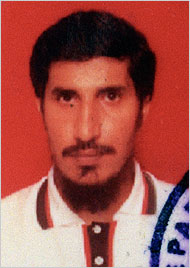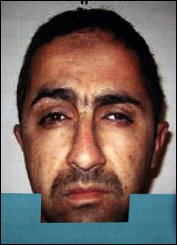Iraq Watch: September 25, 2006
A senior al-Qaida figure who last July escaped along with three other inmates from a Afghanistan jail was killed early Monday morning during a raid by British forces in the southern Iraqi port city of Basra.
Omar al-Farouq, who also went by Mahmoud Ahmed or the nom de guerre Omar al-Iraqi, was shot dead when some 250 British troops stormed his residence in the city's predominately Sunni Junainah neighborhood. Al-Farouq was reportedly killed after he attempted to fire on his pursuers.
Born in Kuwait to Iraqi parents, al-Farouq was rumored to have assumed control over al-Qaida's operations in Southeast Asia following the apprehension of Abu Zubaydah in March 2002. Al-Farouq's position was short lived, however, as he was apprehended by Indonesian police in Jakarta in June of the same year.
The New York Times reports that al-Farouq had entered Iraq through Kuwait a few weeks ago and had been staying with his brother in the border town of Zubayr. Al-Farouq purportedly traveled to Basra, Iraq's second largest metropolis, to visit his ailing mother.
Following his 2002 arrest in Jakarta, al-Farouq was readily handed over into American custody and shipped to the U.S.-run detention center in Bagram, Afghanistan. Al-Farouq gained prominence when in July of 2005 he, along with three other prisoners, escaped from the maximum-security detention center at Bagram Airbase.


